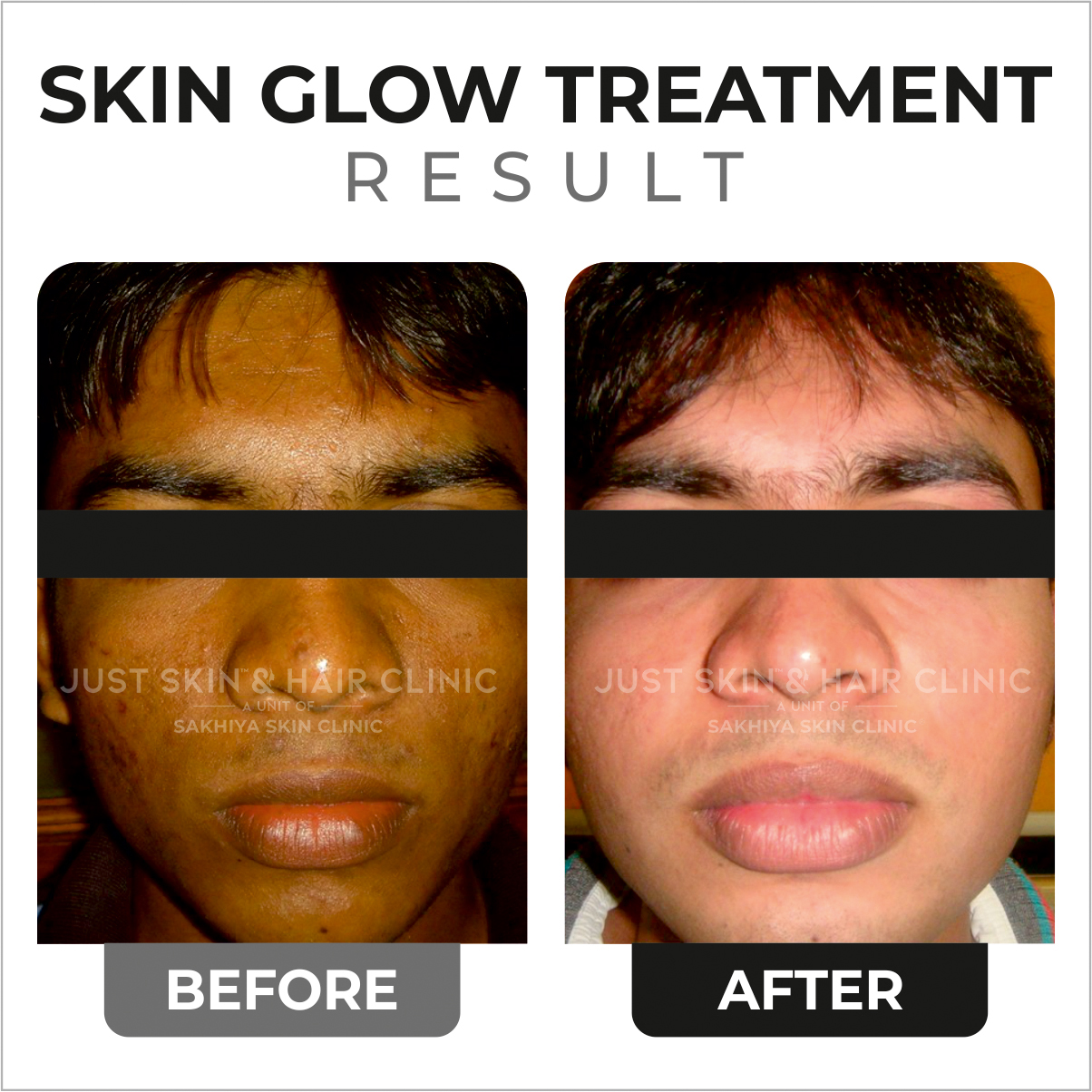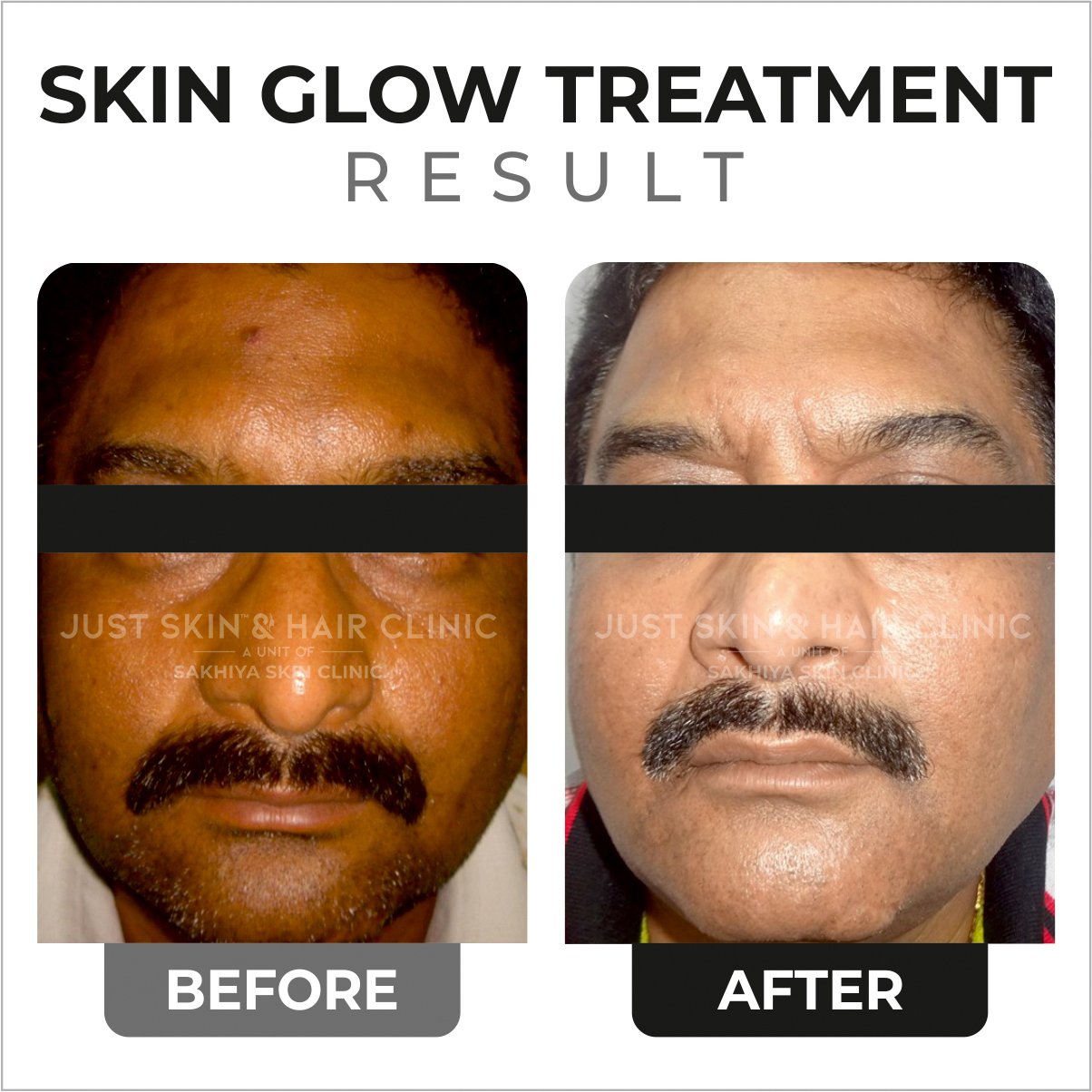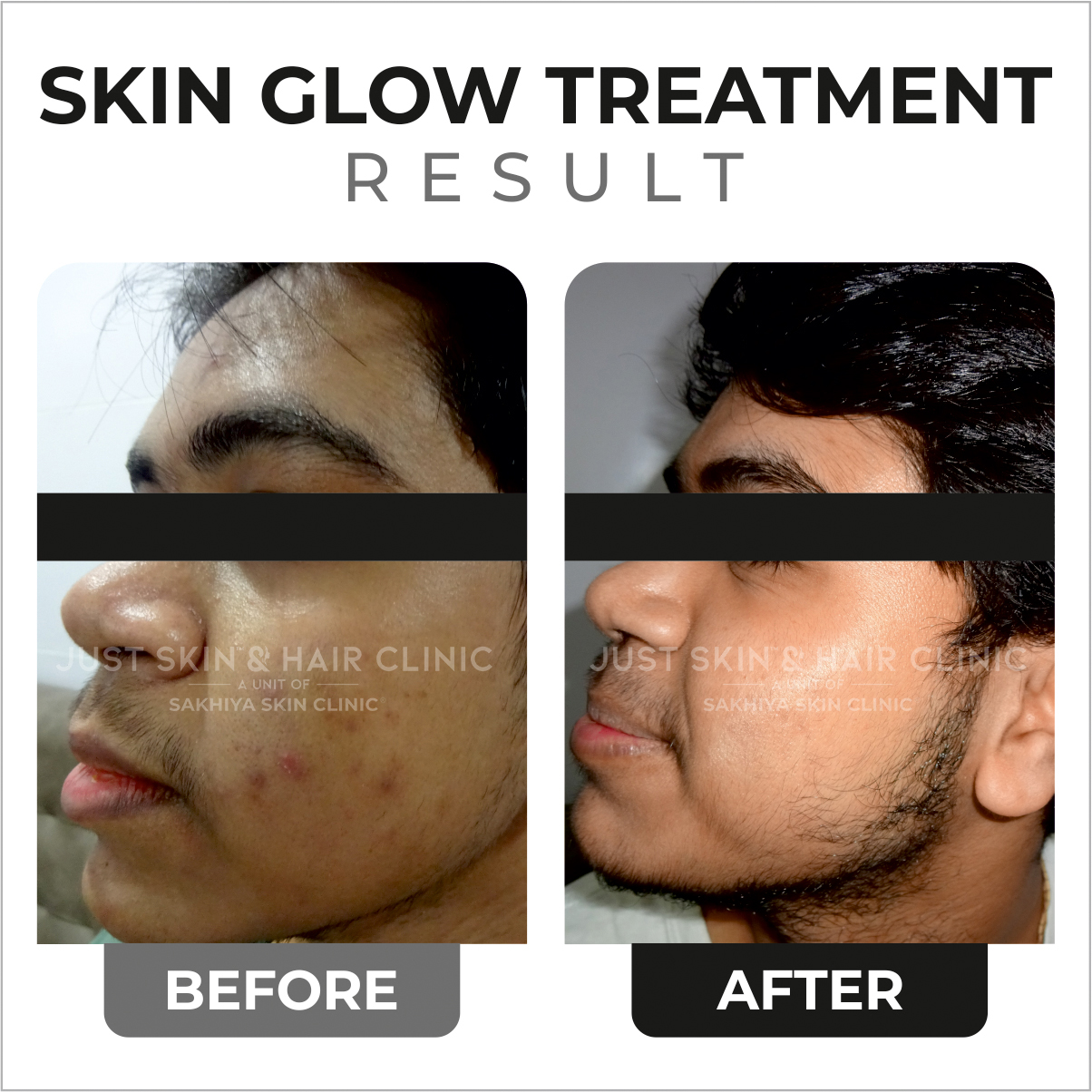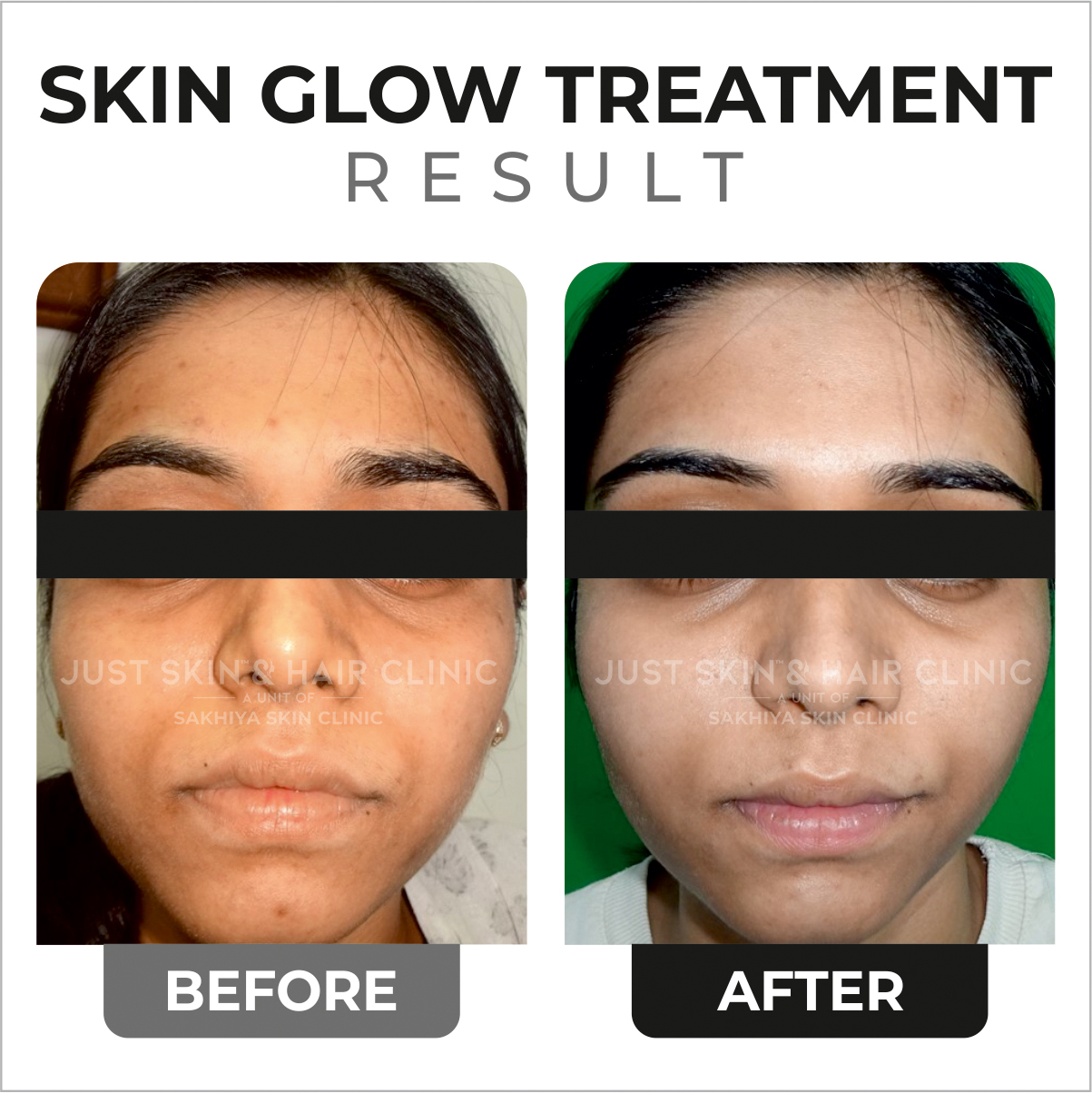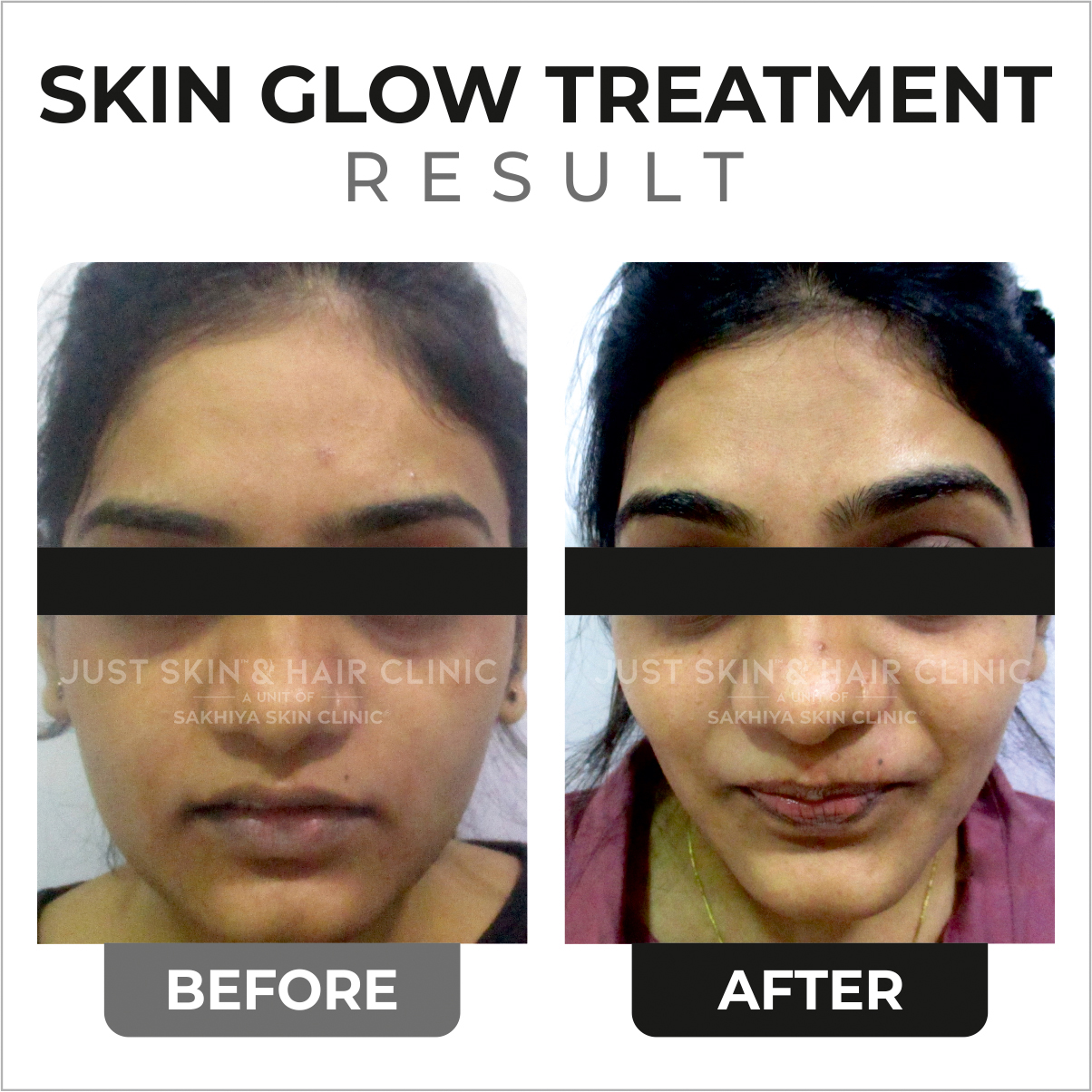Laser Skin Glow
Skin glow treatment helps in getting an even skin tone and improving its texture as well. This treatment targets dark patches, darker areas, dark spots, age spots, melasma, hyperpigmentation, and uneven skin tone.
Description
Laser skin glow treatment is a revolutionary non-invasive procedure designed to rejuvenate your complexion and restore your skin’s natural radiance.
What are the symptoms of allergy?
- Dark patches
- Darker areas
- Dark spots
- Age spots
- Melasma
- Hyperpigmentation
- Uneven skin tone
Methods/Solutions
Skin glow procedure can be performed on the whole body or even a part of it. There are various ways of permanent skin lightening treatment.
- Q Switch
- Facial’s
- Organic Peel
Effects/ Causes
People seeking a brighter, more even complexion are increasingly turning to skin glow treatments. These non-invasive cosmetic procedures are designed to revitalize the skin, offering a safe, reliable, and convenient option for those looking to enhance their natural beauty.
Benefits of Skin Glow Treatments
- Enhanced Skin Radiance
- Reduced Visibility of Skin Imperfections
- Smoother Skin Texture
- Refined Pores
- Improved Overall Complexion
Causes
- Melasma
- Sun Exposure
- Post-inflammatory hyperpigmentation
- Sun Damage
- Aging
frequently asked questions
Allergy is a condition wherein a person's immune system reacts abnormally to a harmless foreign agent/substance.
Majorly, there are three types of skin allergies commonly faced by people-
A. Eczema
In this type, people face redness, itchiness, and dryness on their skin. It also has various types.
B. Contact dermatitis
Whenever any allergen comes in contact with the skin, it breaks out and leads to blistering, redness, or itchiness.
C. Hives (urticaria)
These are tiny itchy bumps that appear on the skin when it comes in contact with an allergen. At times, these vanish on their own, and sometimes, these last as long as six to eight weeks.
The symptoms depend on the type and severity of the allergy and hence, vary from person to person. The most common symptoms are as follows-
- Dry, rough, and scaly patches
- Itchy skin or bumps
- Redness and irritation
- Dark patches
- Swelling
- Cracked skin
- Skin becoming highly sensitive
A skin allergy happens when the skin becomes irritated. For some reason, one's immune system reacts to some agent which is generally harmless. This allergic reaction may cause rashes, itching, bumps, redness, burning sensation, swelling, hives, etc.
Exposure to the Sun and harmful UV rays adds up to the irritation and sensitivity your skin already has. It is recommended not to go out during peak hours of sunlight. Shield your skin with cloth and apply sunscreen if it's necessary to go out.
Honestly, there is no cure for allergies right now. There are certain medications that can soothe the skin. Avoiding contact with allergens would help in preventing the occurrence and spread of allergy. Immunotherapy is also considered effective in reducing the gravity of allergic reactions.
An allergy is caused when our immune system mistakenly reacts to a harmless agent. The immune system keeps producing antibodies that remain alert for that allergen. So, whenever the skin is exposed to that allergen, these antibodies release immune system chemicals that eventually cause allergy. Generally, these allergens are airborne, any food products, insect bites, medications, etc.
One can't necessarily pass on the allergy genetically but if any parent has numerous environmental allergies, there is a high chance of the child developing some kind of allergic disease.
The allergic reaction may occur within minutes to hours of being exposed and may last for two to four weeks. It all depends on what type of allergy the person has.
The most common type of allergy test is skin prick testing. In this method, a drop of liquid containing the prospective allergen is put onto your forearm. The skin under this drop is carefully pricked using a needle. A red and itchy bump appears on the skin within 15 minutes if the skin is allergic to it, claiming positive results.

